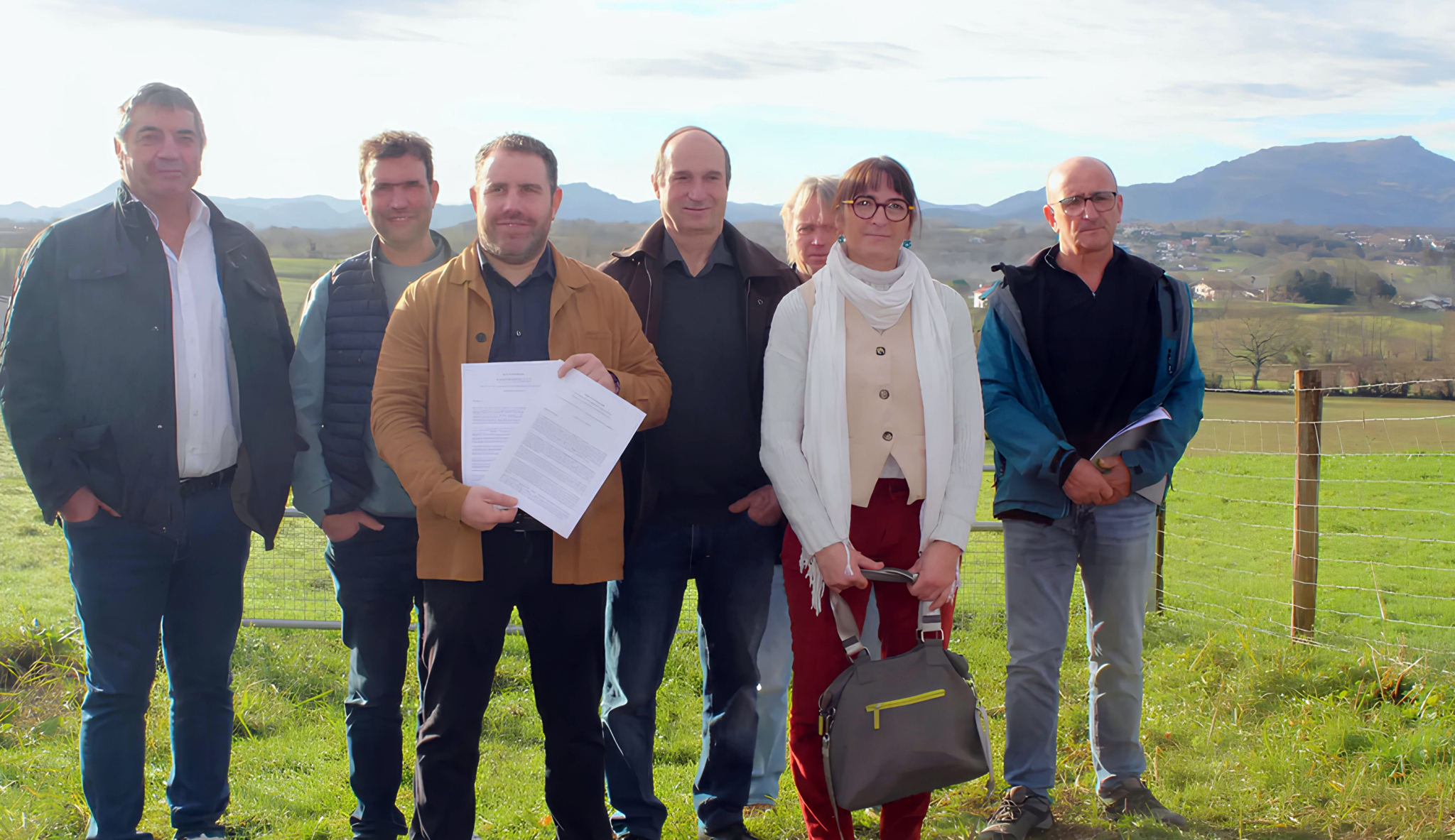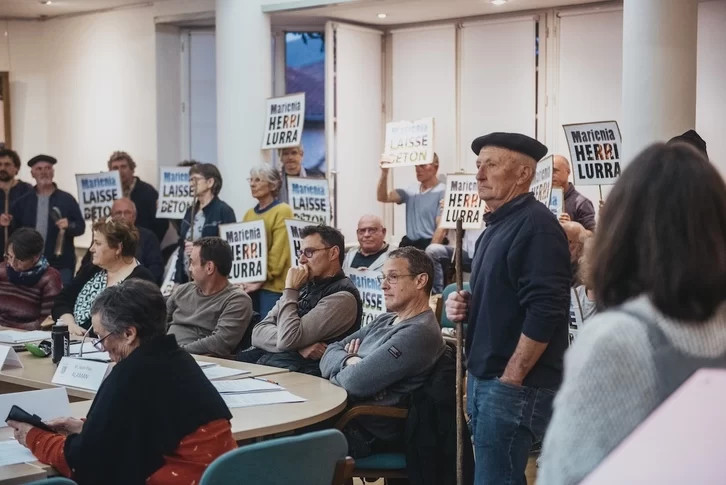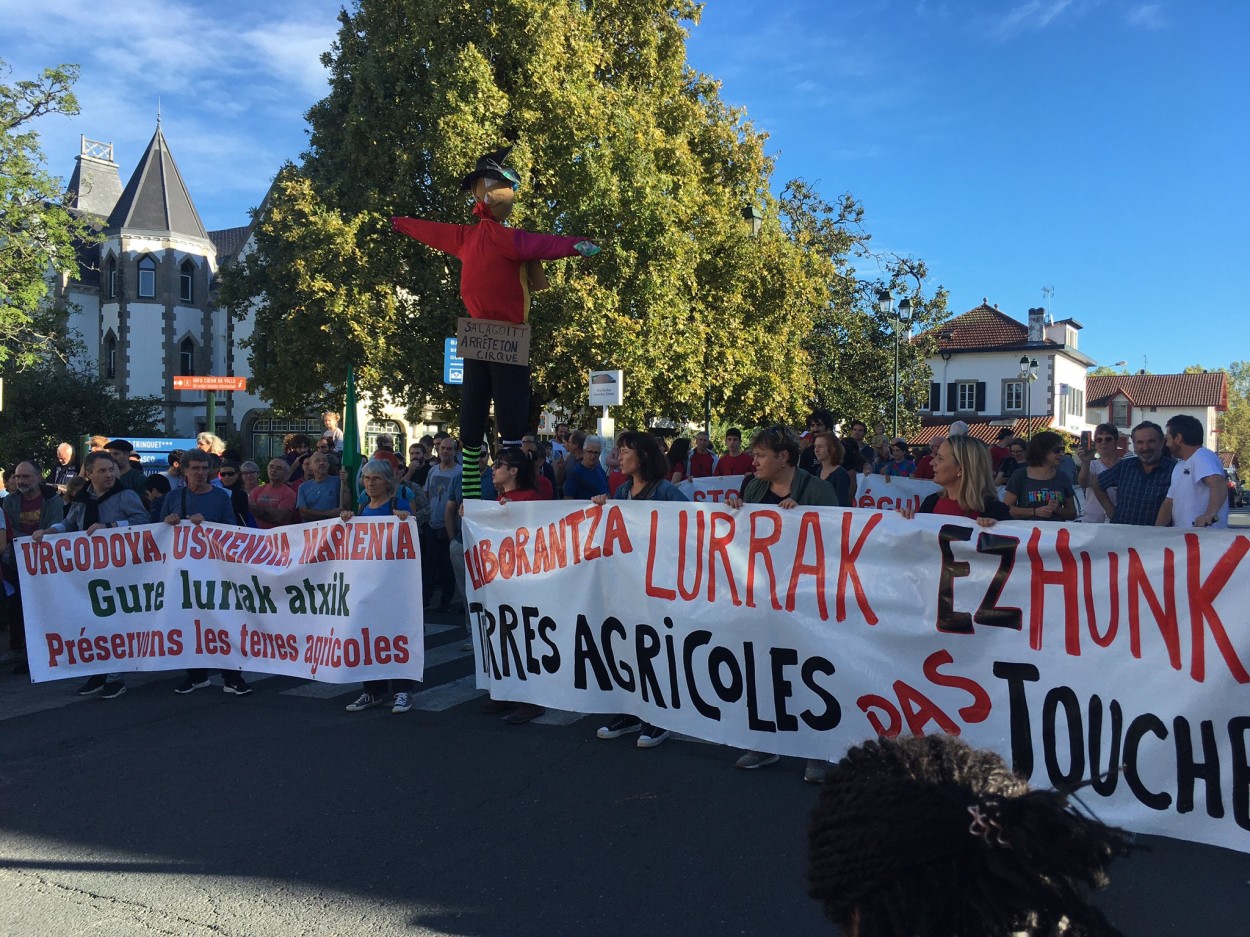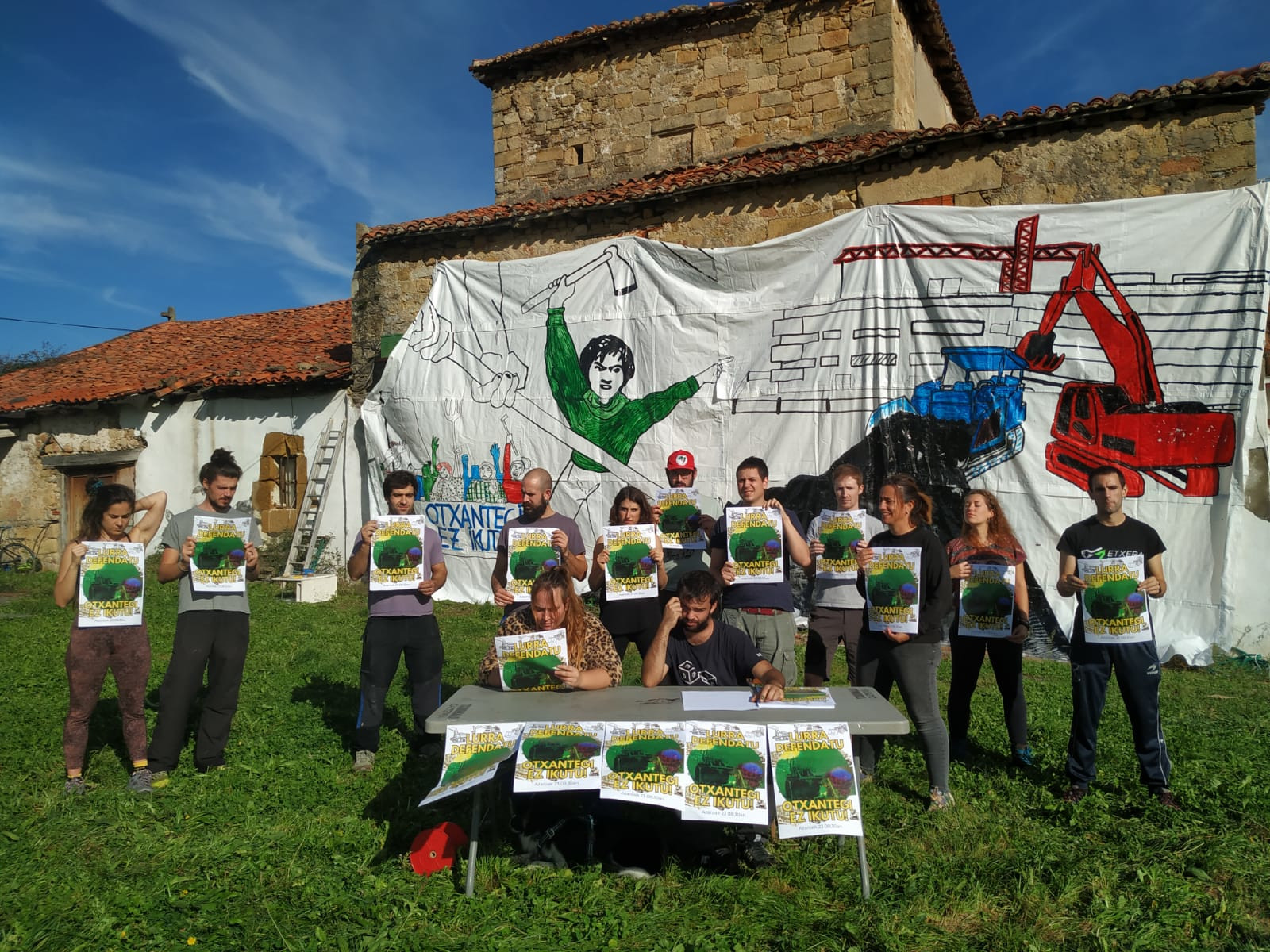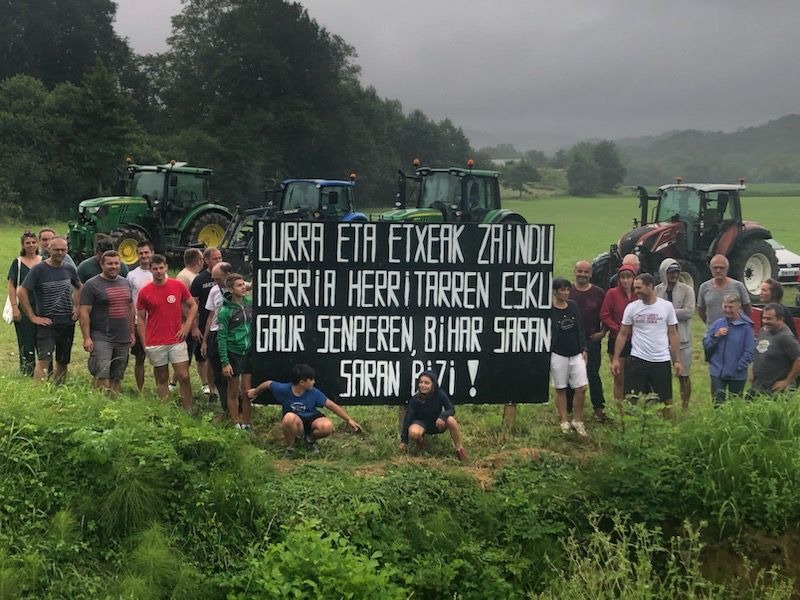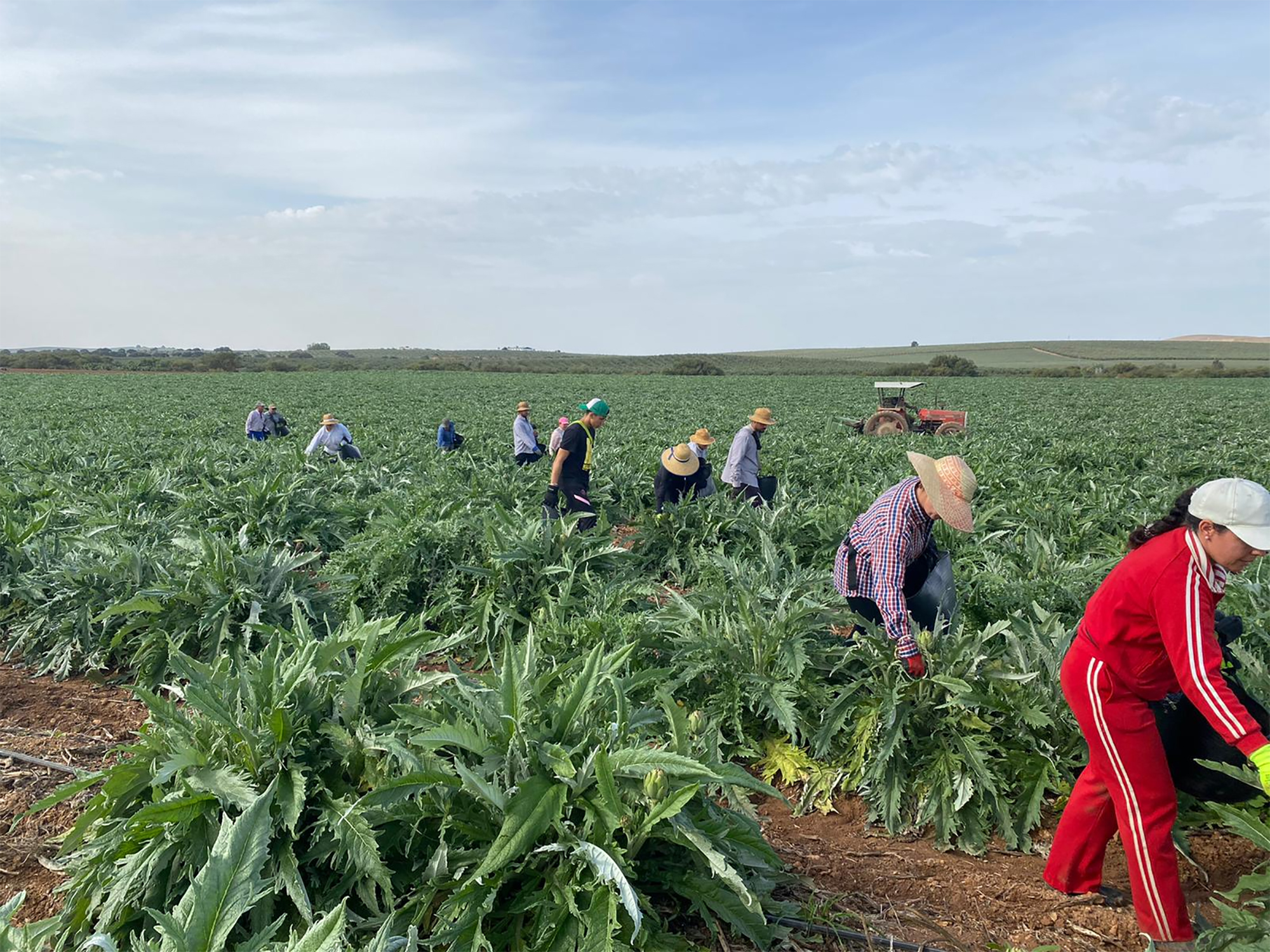“I wish more farmers than citizens, but how do you do that?”
- Isabelle Pargad is in charge of food and cultivation at the College of Basque Urban Centers. ARGIA (CG). — (IT) Mr President, I should like to thank the Commissioner for his reply.

Between 2015 and 2018, 2,450 hectares of farmland disappeared in the Northern Basque Country, losing 600 hectares each year. What is your feeling about this data?
We live in a very attractive territory and the population is growing. This means an increase in housing demand and a need for economic activity. To this must be added the fact that some villages do not follow. These two phenomena mean the disappearance of farmland.
It's attractive and rich people come and speculate to conquer land and houses.
Speculative logic is there, and some prefer to retain the cultivated land until it is classified as “buildable” in the urban document, to sell it and receive the maximum income. This phenomenon occurs in areas near the coast – territory of Hazparne, area of Errobi. The Local Urbanization Plan PLU has a map that protects farmland, and what should initially be a crop for soil protection, now changes: some millionaires buy a house surrounded by farmland, without neighborhoods, that is, they buy peace. The case of Arbona was mediated, but of this kind we have many in the Basque Country.
They have signed an agreement between Safer and Euskal Hiri Elkargoa, in which Safer will process the preferential land purchase procedure at any time when they are sold at an excessive price, with a guarantee from the college.
When the price review is carried out, the owner has three options: either he takes him out of the sale because he does not accept the price proposed by Safer, or he accepts it, or he goes to court for fixing it. What will the judge do? It attends and fixes all sales in the territory. The objective of this political decision is therefore to control these references and to moralise prices, because without them they are growing. The College will be guaranteed by the Safer, so when the decision price of the judge is higher than that of the Safer, the Safer will have to buy it and, if necessary, we will be there to protect the good.
“Some prefer cultivation until the land is classified as “buildable”, to sell it and make the highest income possible”
This asks for a budget and the continuation of transactions.
The pre-standard shall be determined. But Safer is following her day to day and channeling her right to challenge. This persecution that Lurzaindia was carrying out so far has a tremendous role in the conservation of agricultural land. We will take the issue in our hands and be with this collective as a collective.
The case of Arbona showed us the limits of the legislation and hence the drafting of a bill by two Members to expand the competencies of Safer and classify cultivation as a general interest. What is this path?
I do not know when it will pass through Parliament, because the legislative route is complex. What I know is that they introduced the bill and that it was fairly well received.
Do you think the elect are aware of the problem? Do you know the instruments for protecting crops?
We don't master all the tools, and that's why we just processed a document presenting them all. The Local Urbanization Plan is the one we know the most, but it is not the only instrument. The houses of the people are not entitled to the preferential purchase of farmland. So if we want to develop a cultivation plan, what are the different rental contracts? What agreements can we make with Safer? How can we recover empty goods that have not been used long ago?
The School's Local Housing Plan states that until 2026 2,686 households in the Northern Basque Country will be built annually. This will in many cases lead to the artificialisation of farmland.
We are aware that we must act in moderation, so we have as a priority to repair what is there, densify the public centre and renew empty houses. But that does not go without difficulties: if the private do not want to sell, or if the good is spread among angry relatives or the owner lives far… it can be really complicated and we have many means to convince ourselves. The problem of empowerment is that of empty houses, and yet we know that they are not enough to guarantee all housing needs.
Marienia symbolises a problem: the good cultivation grounds disappear because they are destined for urbanism. With the aim of food sovereignty, the College is implementing the Territorial Food Plan. What do you think of the Marienese issue?
That is the correct equation: how to ensure the balance between housing construction, the retention of farmland and the generation of economic activity? We need economic activity throughout the territory, because without it we have the death of peoples and the development of jungle cities. Withholdings between the coast and the interior are impossible. So that is the challenge and the Marienia case highlights it. I look at the identity of the peoples: Kanbo Hazparne is like Kanbo Hazparne in terms of population and location, but we don't have the same identity: Kanbon's health has a lot of place, if we have Hazparn's growing identity we still have 114 farms. We have been a long way away, we have redirected some land to cultivation. It looks like Cambo wants to go the other way. If we have a clash between the need for housing and the protection of farmland, and each year we pay a fine of EUR 130,000, because we do not have enough social housing. It's very complex. But yes, Marienese lands are very beautiful. The matter depends on the house of the people, the school has not put its hand.
But don’t you have to put your hand in watching the school’s reflection on food and cultivation?
“How to ensure the balance between housing construction, farmland retention and economic activity generation?”
It is a fat debate. I say, and we do not all have the same view, that the development of the people is very strategic and that it must be a contentious issue. I told the Hazpan that there was too much urbanization and with that message I was chosen from the field. Now some people tell me that I have to build housing, that I have to build 555 social housing for three years, some of the people on the coast accuse me of not doing enough. But no! How can I accept a non-Hazparne constituent occupying a farmland for housing? I wouldn't stand, and I look at Cambo with the same prism. Yes, if it is and is a Community logic, we must reflect at territorial level. We will decide it collectively, but from the identity of each and from the development perspective of each for his people. It would be wrong for it to impose the construction of homes on farmland, so I do not see what they have to do to others. See what I mean? As a controversy, our engine is the vision of our people, we share it with the voters. If that goes away, why would we be talking?
In the end, where the challenge is looked at. The location is not "I need n hectares to guarantee food autonomy for Ipar Euskal Herria or my country, therefore, how will I guide housing policy?" The situation would be radically different if we thought in that direction ...
I understand what he says, but maleruski, we haven't thought that way. We need that reflection, but taking it to the head: how many growers do we need? For what and for whom to produce? 85% of the meat we produce is exported and that question me: we talk about food sovereignty, but why? Food sovereignty is not only involved in land calculation. We conducted a study with the college, in collaboration with EHLG, to draw the 2050 picture: How many will we be in 2050? What will the weather be like? Which dish will we need? So how many crops and land will we need? We'll need at least 11,000 crops. We are far away. I too would prefer more farmers than more citizens, but how is that done?
Especially looking at the future. We will have to relocate production and consumption.
We will have to relocate it, but it is a huge job, it is not easy. One, you need land, two, you need peasants and three, you need to meet local demand. The interview
is part of the following report:
Lurraren alde borrokan dabilen orok begi onez hartu du Frantziako Legebiltzarrak laborantza lurren babesteko lege-proposamenaren alde bozkatu izana. Peio Dufau diputatu abertzaleak aurkezturiko testua da, eta politikoa eta sentimentala juntaturik, hemizikloan Arbonako okupazioa,... [+]
203 diputatu alde eta hiru aurka agertu dira martxoaren 11 gauean egin bozketan. Higiezinen agentziak haserre agertu dira, eta bi salaketa aurkeztu ditu FAIN Frantziako Higiezinen Federazio Nazionalak Europako Batzordean. Bata, lege-proposamenari esker botere gehiago jasoko... [+]
The two main voters in Kanbo (the mayor and the prime minister) are the rabid ones. Three citizens have been beaten with a plainta, for protesting in favour of the eviction of the neighbor Marienea.Es the second time that, at 06:00 in the morning, they take us out of bed (with... [+]
Kanboko Marieniako higiezin proiektuaren kontra bildu dira elkarte eta herritarrak larunbat honetan. Larunbatean, mahai inguru eta tailerren bidez herritarrak sentsibilizatu nahi izan dituzte Bouygues Immobilier agentziaren proiektuaren desmasiez.
The devastating trend to the cement business does not cease in Berango, and we are currently experiencing two important moments. On the one hand, the date for the forced emptying of Otxantegi is set: 23 November. On the other hand, the procedure for starting works on the... [+]
The French State Council has decided that the Earth Survey should eliminate the destruction of the network. Although it is confirmed that this movement causes "violence against goods", the legalization would not be "an appropriate, necessary and adapted measure". It is good news for... [+]












